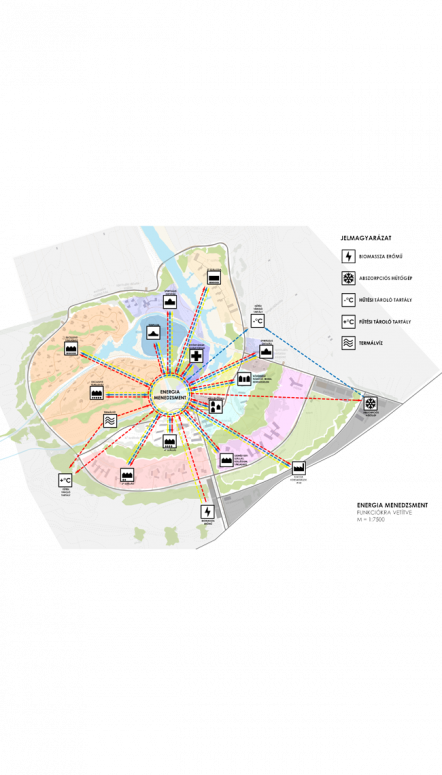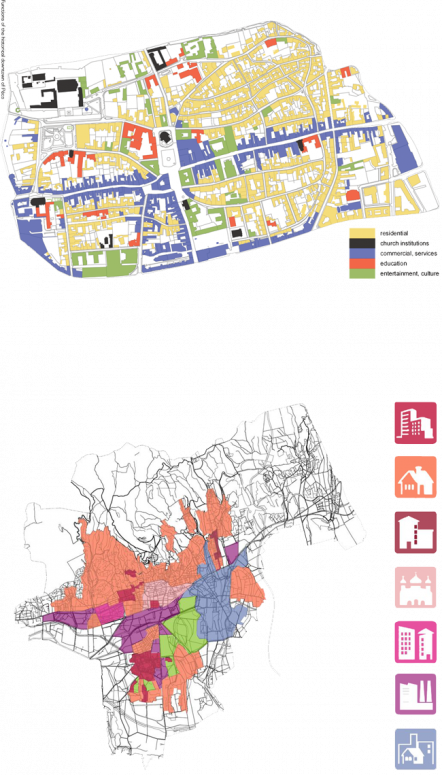


The holistic character of Energy Design requires extending the focus from single building on the larger context, on the connection of several buildings across districts to the level of complete cities. Based on extreme growing population tendencies in settlements and urban neighbourhoods, handling of urban planning aspects is critical in respect to energy and environment optimised retrofitting of historical city cores, or refurbishing and extending existing city districts. Also development of new sustainable settlements is of prime importance, since the implementation of one green, high comfort and energy performance building contributes only ‘one water droplet’ amount of improvement in our society’s’ sustainability evolution, while creation of complete districts and cities represents the ‘ocean’ sized advancement. Settlement modelling theory. Climate and energy analysis of positive and negative, new and existing settlement refurbishment design settings and case studies. Vernacular, environmental friendly, efficient settlement history. Urban climate and comfort factors (of external, public spaces): radiation, air temperature, relative humidity, precipitation, clouds, fog and air quality, effects of topography, orientation, A/V-ratio and building typology, wind conditions and protection, shelters, city ventilation and aerodynamic aspects, as well as shading and daylight in city planning. Case study examples of zero CO2 city and smart village projects. Sophisticated design method to develop smart zero-CO2 master plan, based on complex site analysis, low and high tech solutions and simulations. Climate and geographical conditions, vernacular strategies, passive and active building technologies, thermal and CFD simulation supported design, as well as traffic, transport and infrastructure system planning contribute to urban CO2-neutrality. General energy, material and climate flow, furthermore ecology cycle systems, aspects of density and economic space usage, horizontal and vertical green spaces, biodiversity as well as HVAC-system concepts ensure long-term sustainability. Settlement energy guide (SEG) for both new and refurbishment projects. The design and assessment methodology has different steps in order to create a settlement energy concept plan. A second part of the SEG deals with the topic of settlement energetics, heat and electricity demand calculations using statistical tools. After existing situation and status analysis of the building substance, energy infrastructure and the regenerative energy potentials, the settlement scaled energy concept plan can be worked out with help of future scenarios.
